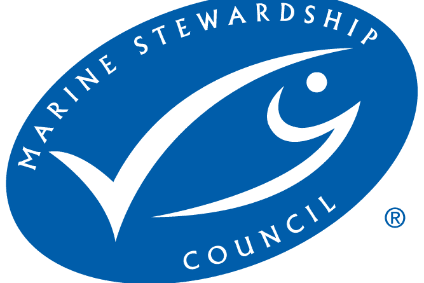
A UK parliamentary committee has called on the Marine Stewardship Council (MSC) to address concerns raised during a recent inquiry into the organisation’s standard for sustainable fishing in the world’s oceans.
The House of Commons’ Environmental Audit Committee (EAC) issued recommendations today (17 January) following its Sustainable Seas inquiry, the findings of which were published last November. Launched in April last year, the inquiry focused on how marine life can be protected from climate change, over fishing and pollution, and how the UK government can “create a sustainable blue economy”.

Discover B2B Marketing That Performs
Combine business intelligence and editorial excellence to reach engaged professionals across 36 leading media platforms.
One of the inquiry’s oral evidence sessions focused specifically on the effectiveness of the MSC’s eco-label and fishery certification scheme. MSC is an independent non-profit organisation which sets a Chain of Custody standard, whereby its blue label is only displayed on seafood traceable to a MSC-certified sustainable fishery.
The EAC inquiry was supported by a campaign led by On the Hook and backed by scientists, retailers and non-governmental organisations, including Professor Callum Roberts from the Environment Department at the University of York, World Wise Foods (WWF), the Blue Marine Foundation, and chef and TV personality Hugh Fearnley-Whittingstall.
Campaigners’ criticisms over MSC’s standards centred on its unit of assessment, the need to factor in carbon from ships, and concerns about shark finning.
EAC said in a statement: “To ensure continued consumer confidence in the Marine Stewardship Council certification, we recommend the MSC addresses specific criticisms raised by WWF, Prof. Callum Roberts and others into its five-year review, and strengthens its standard accordingly. The review should be transparent and ideally independently evaluated. Ultimately, voluntary, market-based schemes will never be applicable or relevant to every fishery.”

US Tariffs are shifting - will you react or anticipate?
Don’t let policy changes catch you off guard. Stay proactive with real-time data and expert analysis.
By GlobalDataMeanwhile, On the Hook, a campaign launched in August 2017, urged the MSC to review its fishing standard allowing MSC-certified products to be caught alongside unsustainable methods of fishing. Another focal point was the recertification of the PNA tuna fishery in the Pacific, which was recertified in March 2018, and also the incidence of shark finning in certified fisheries.
On the Hook said in a statement today it “hopes that the [UK] Government will endorse the EAC’s recommendations on the MSC and looks forward to seeing the MSC’s plans for addressing the issues raised by the inquiry”.
Prof. Roberts, who is also the spokesperson for On the Hook, commented: “I’m delighted that the Environmental Audit Committee has recommended the Marine Stewardship Council address the issues raised during this inquiry by strengthening its standard with a transparent independent review. An independent review would offer the best possible opportunity to deal with issues highlighted by stakeholders, including unit of assessment and shark finning, and ensure the future credibility of the MSC eco-label. I look forward to hearing the MSC’s plans and timeframe for such a review.”
MSC issued its own statement today saying it “welcomed the publication” of the EAC report, but that it was currently undertaking a review of its standards. The organisation also noted the constructive comments made by the Committee: “The Marine Stewardship Council standard is the market leader and the most rigorous certification in the seafood sector.” It also referred to a section of the report noting that “alternative labelling and certification systems… are not nearly as rigorous or stringent”.
Erin Priddle, the MSC’s UK programme director, said: “The report reflects the complex, often polarised views around seafood certification. While some claim the bar is too low, others warn that it is ‘becoming too high even for world leading fisheries’. This illustrates the challenge of a global standard: if the bar is raised too high, it risks preventing fisheries – such as small scale and developing world fisheries – from ever reaching that bar.”
MSC added that the criticism contained in the report over “unit of assessment, the holistic assessment of fisheries, carbon emissions from fishing boats, shark finning, and barriers to entry for small-scale fisheries,” are all, with the exception of carbon emissions, being addressed in its in-process Fisheries Standard Review, “or in separate consultations taking place in 2019”.
Priddle continued: “We acknowledge that there are some who have concerns about aspects of the MSC programme, or doubts about individual certifications. We take these concerns seriously and are grateful for all contributions which will help to strengthen the MSC Standard. We look forward to working with all involved in the coming weeks and months to listen to their contributions and, through this review and the potential updates to the Standard, reassure them of the programme’s rigour.”





